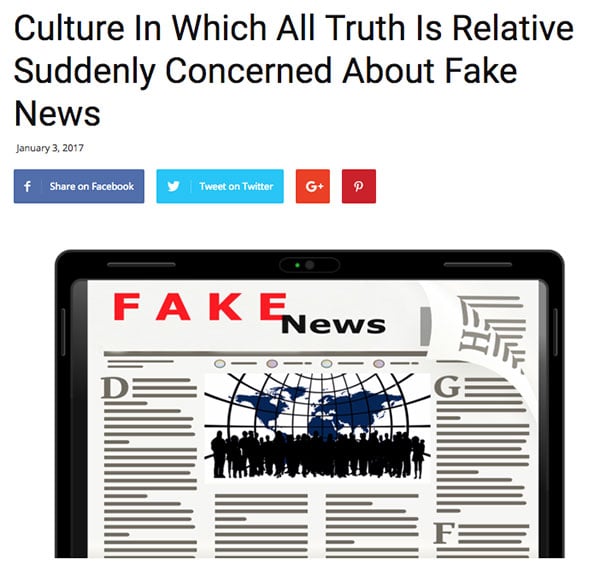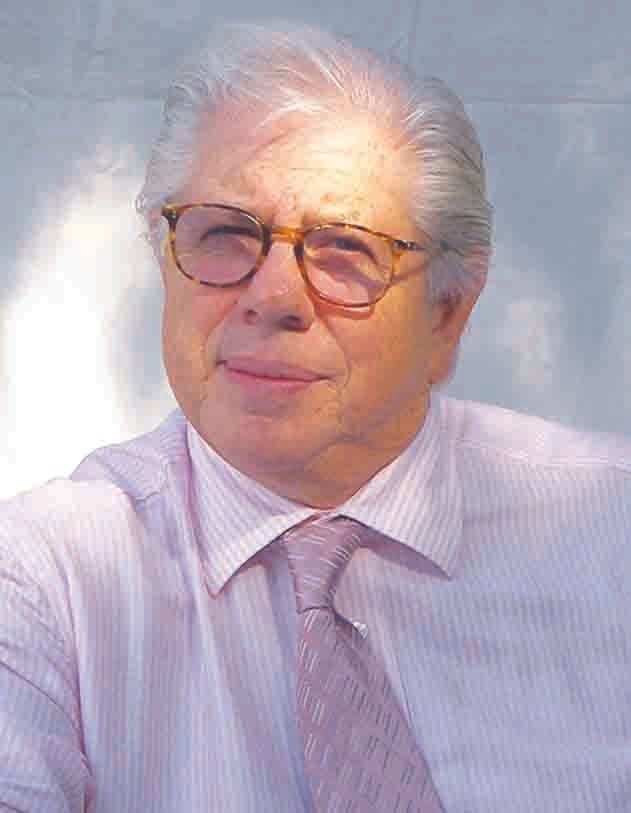
A chronicler’s daughter shares memories
Printer’s ink flowed through the veins of Lavella Hicks McMillan…
| Refresh | This website christianchronicle.org/news-of-faith-in-the-age-of-post-truth/?file=article&sid=184 is currently offline. Cloudflare's Always Online™ shows a snapshot of this web page from the Internet Archive's Wayback Machine. To check for the live version, click Refresh. |
 Erik Tryggestad | Inside StoryThat’s some brutal honesty from Sarah Sparks, one of the students in a class I taught at Oklahoma Christian University this semester, Writing Across the Media. We had just spent the hour lamenting the preponderance of fake news, which spread like a virus across our social media feeds during the 2016 campaign.
Erik Tryggestad | Inside StoryThat’s some brutal honesty from Sarah Sparks, one of the students in a class I taught at Oklahoma Christian University this semester, Writing Across the Media. We had just spent the hour lamenting the preponderance of fake news, which spread like a virus across our social media feeds during the 2016 campaign.
Outrageous claims against both presidential candidates — conspiracy theories mired in nonsense, without a shred of truth — got forwarded and shared indiscriminately.
A lot of folks didn’t make it past the clickbait headlines before they posted comments of rage. “See, I told you so. The other side seeks to destroy our country.” Far, far too many of our brothers and sisters in Christ did this, too.
I asked the students to jot down their thoughts on what we talked about.
Basically, I let them rant.
 A recent headline from the satirical website The Babylon Bee.
A recent headline from the satirical website The Babylon Bee.
“We’re not looking for actual truth anymore. We’re looking for positive affirmation,” wrote Jeffrey Edwards. “If the truth angers us, we simply spin it in such a way to support what we already believe.”
It’s a long-held theory of mass communication that he’s voicing. We bring our preexisting beliefs into what we read. If the information doesn’t fit those beliefs we learn to accept that not everyone thinks exactly as we do or we disregard and discredit the source of the information.
The latter, unfortunately, seemed to happen more frequently in 2016 than in years before. The amount of information we have easy access to is enormous, yet we pick and choose the messages we want to hear — regardless of the amount of accurate information they contain.
Things are so bad, in fact, that the Oxford Dictionary selected “post-truth” as its 2016 word of the year. It’s an adjective defined as “relating to or denoting circumstances in which objective facts are less influential in shaping public opinion than appeals to emotion and personal belief.” Sad.
It’s easy for me to point fingers at partisan, fake news sites as the cause, but those of us trained in journalism, working for respected publications, are not without sin.
In mid-2016, I got to hear one of my journalistic heroes, Carl Bernstein, address the Oklahoma Society of Professional Journalists at its annual awards banquet. Bernstein, the Washington Post reporter who, along with Bob Woodward, uncovered the truth behind the Watergate burglary in 1972, had this to say about the current state of our profession:
 Carl Bernstein says that the picture of society rendered in media, too often, is “illusionary and delusionary.” (PHOTO VIA WIKIMEDIA COMMONS)“Today, and for some time now, the picture of our society as rendered in our media and our politics in America is too often illusionary and delusionary, disfigured, unreal, out of touch with truth, disconnected from the true context of your lives and all of our lives, disfigured by … celebrity worship, by our gossip, by sensationalism and by a discourse in which the people of the country — the politicians and the press — are turning into a cacophony of easy answers to tough questions, shortcuts, intolerance and the inability to have a fact-based debate in this country.
Carl Bernstein says that the picture of society rendered in media, too often, is “illusionary and delusionary.” (PHOTO VIA WIKIMEDIA COMMONS)“Today, and for some time now, the picture of our society as rendered in our media and our politics in America is too often illusionary and delusionary, disfigured, unreal, out of touch with truth, disconnected from the true context of your lives and all of our lives, disfigured by … celebrity worship, by our gossip, by sensationalism and by a discourse in which the people of the country — the politicians and the press — are turning into a cacophony of easy answers to tough questions, shortcuts, intolerance and the inability to have a fact-based debate in this country.
“It’s the job of the press to report on real, existing conditions of a culture — a society, a government, a sports event, an election campaign, a candidate — not to bring about the desired result of the reporter or newspaper editor or owner.”
So how do we fix it? What role can a Christian in journalism play?
And how can all of us, regardless of what role we play in society, be better news consumers?
I put those questions to the students. A few of their responses:
 Mercedes Ducat
Mercedes Ducat
• “As a journalist, your job is to seek truth and get it out there — and it is supposed to take work,” wrote Mercedes Ducat. “Let your beliefs come from personal exploration, not the opinions of others.”
• “Read from more than one site,” Paige Fisher wrote. “More work is required to find the truth now, but that doesn’t mean it can’t be found.”
• “Check the facts,” Brielle Koelsch added. “Surprise, surprise — not everything on the internet is true.” (I appreciate her sarcasm.)
• Ian Jayne urged us to “relentlessly ask questions of everything we read. Ask yourself about the author’s intent, the potential biases of the outlet, and for the piece’s general purpose.”
• Morgan Boling, a journalism major, said, “We are stepping into a field that is damaged. What are we going to do, contribute to the fanatical falsehoods or change the mold?”
It was a real honor to work with this talented, thoughtful group of students, to impart what small measure of wisdom I’ve gained in nearly 20 years of reporting (plus a moderate measure of my Gen-X cynicism). Despite the immense challenges our profession faces, I’m encouraged by what I’ve seen in these young truth seekers.
I keep a photocopy of a column by Olan Hicks taped to the side of my computer monitor. Hicks, the founder of The Christian Chronicle, penned these words for the June 9, 1943 edition, the paper’s second issue:
 Olan Hicks (1907-1963), founder of The Christian Chronicle. (PHOTO VIA WWW.THERESTORATION MOVEMENT.COM)
Olan Hicks (1907-1963), founder of The Christian Chronicle. (PHOTO VIA WWW.THERESTORATION MOVEMENT.COM)
“The Christian Chronicle is to be built on character. It means to stand for right and truth, for zeal according to knowledge. It is a newspaper and is to be conducted on the principles of news reporting We mean to maintain not only the highest ethics of the newspaper profession, but also of Christianity.”
I do my best to live by those words.
I still believe that Christian journalism is not a subset of journalism, but rather journalism as it was meant to be — accurate, truthful creativity in service to the Creator.
Going back to Jeffrey Edwards’ essay, I leave you with these final words. Consider it a charge for 2017:
“It’s time for us to start asking questions and stop taking things for granted. We need to put aside our preconceived notions and dig a little deeper into the news. Also, we need to stop distorting the nature of truth.
“I am still under the impression that there is a universal truth in this universe. Jesus didn’t say, ‘You believe what you want to. There are many ways to follow me and go to heaven.’
“Instead, he said, ‘I am the way, the truth and the life. No one comes to the Father except through me.’
“Rant over.”
CONTACT [email protected].
Subscribe today to receive more inspiring articles like this one delivered straight to your inbox twice a month.
Your donation helps us not only keep our quality of journalism high, but helps us continue to reach more people in the Churches of Christ community.